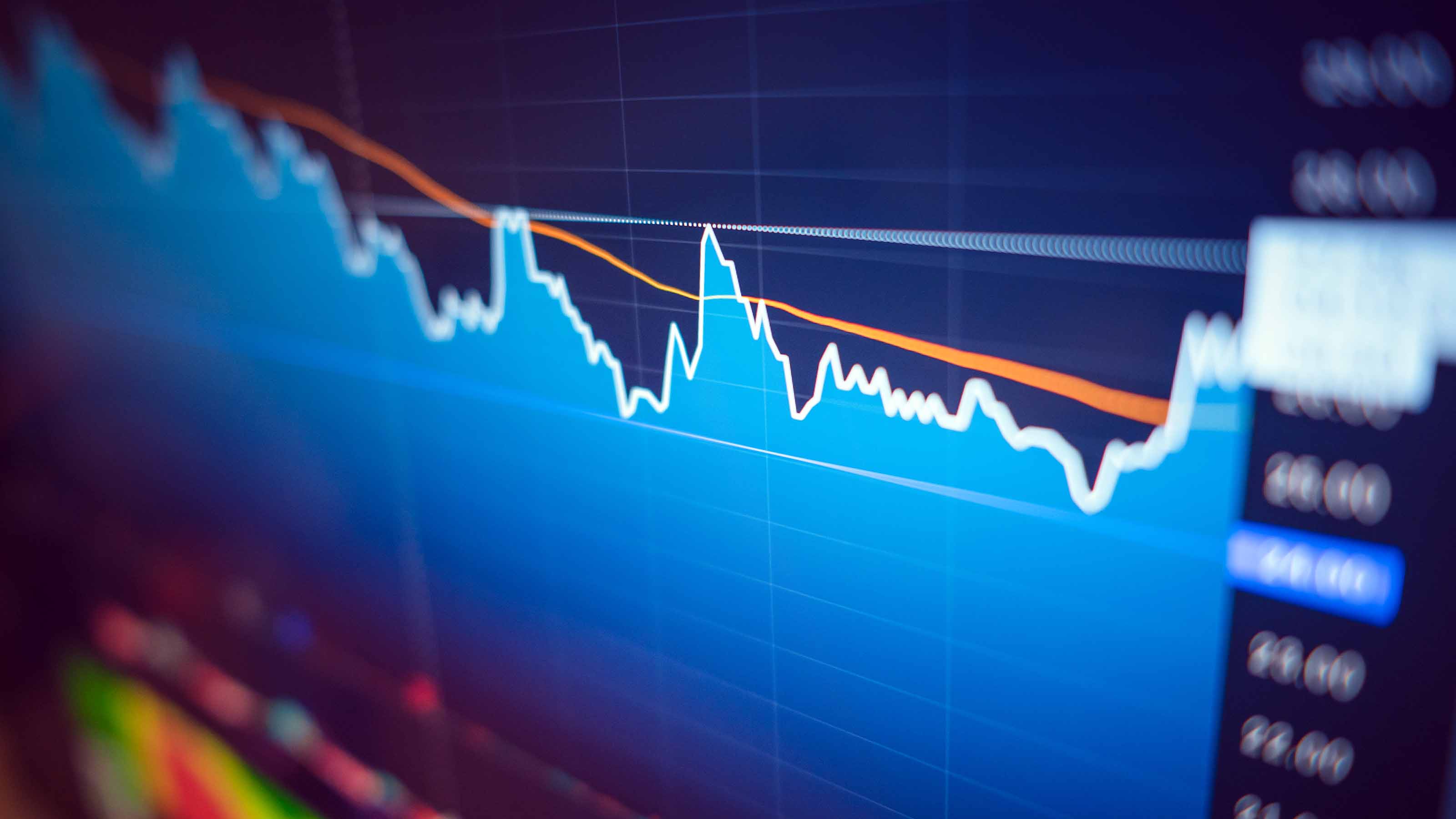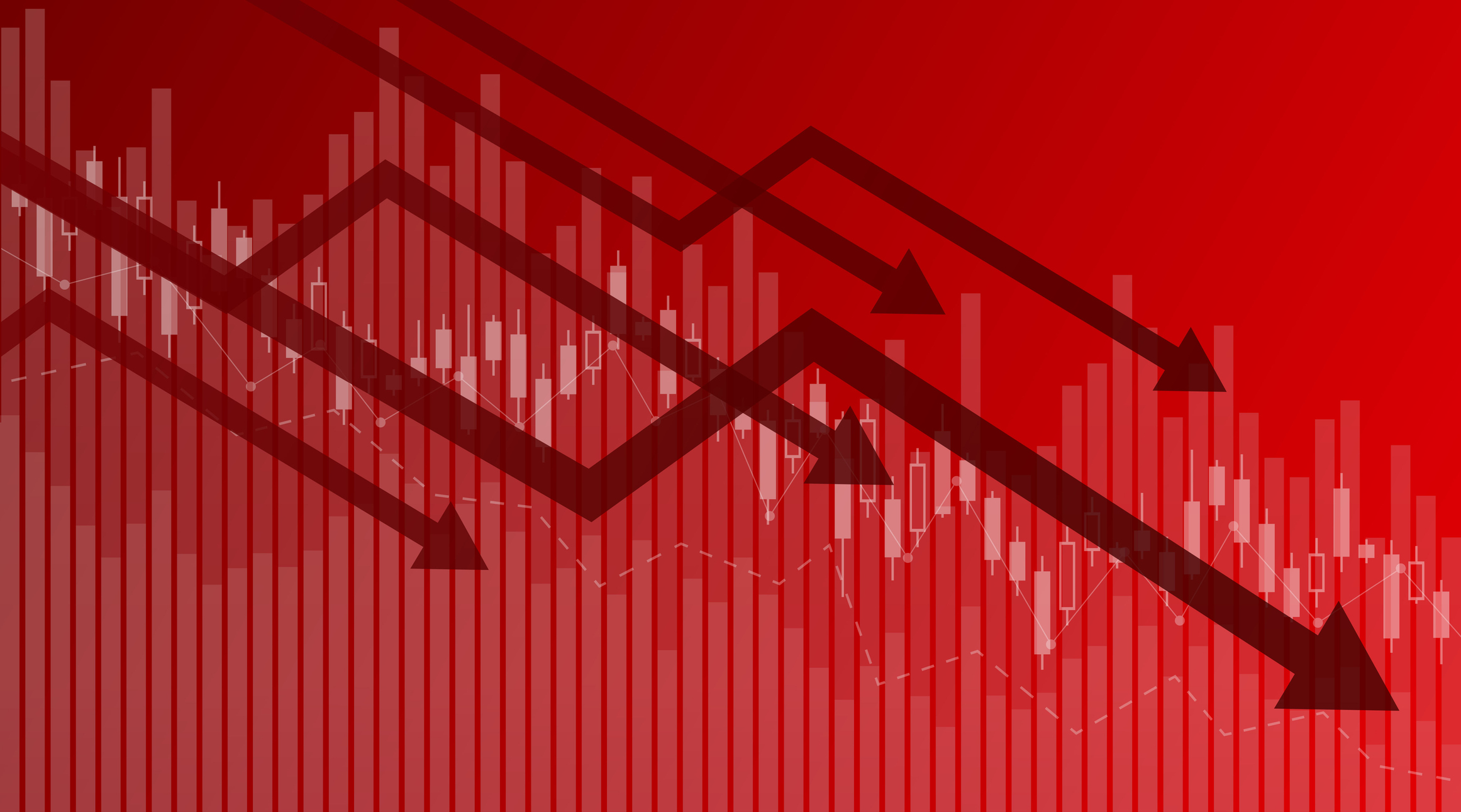Stock Market Today: Stocks Slip as Recession Worries Rise
The major benchmarks finished with modest losses Tuesday after weaker-than-expected job openings and factory data.


Profit and prosper with the best of Kiplinger's advice on investing, taxes, retirement, personal finance and much more. Delivered daily. Enter your email in the box and click Sign Me Up.
You are now subscribed
Your newsletter sign-up was successful
Want to add more newsletters?

Delivered daily
Kiplinger Today
Profit and prosper with the best of Kiplinger's advice on investing, taxes, retirement, personal finance and much more delivered daily. Smart money moves start here.

Sent five days a week
Kiplinger A Step Ahead
Get practical help to make better financial decisions in your everyday life, from spending to savings on top deals.

Delivered daily
Kiplinger Closing Bell
Get today's biggest financial and investing headlines delivered to your inbox every day the U.S. stock market is open.

Sent twice a week
Kiplinger Adviser Intel
Financial pros across the country share best practices and fresh tactics to preserve and grow your wealth.

Delivered weekly
Kiplinger Tax Tips
Trim your federal and state tax bills with practical tax-planning and tax-cutting strategies.

Sent twice a week
Kiplinger Retirement Tips
Your twice-a-week guide to planning and enjoying a financially secure and richly rewarding retirement

Sent bimonthly.
Kiplinger Adviser Angle
Insights for advisers, wealth managers and other financial professionals.

Sent twice a week
Kiplinger Investing Weekly
Your twice-a-week roundup of promising stocks, funds, companies and industries you should consider, ones you should avoid, and why.

Sent weekly for six weeks
Kiplinger Invest for Retirement
Your step-by-step six-part series on how to invest for retirement, from devising a successful strategy to exactly which investments to choose.
Downbeat economic reports ramped up recession fears Tuesday, putting pressure on stocks throughout the session. While the major market indexes traded higher early on, they gradually headed lower over the course of the day as today's data indicated the Fed's efforts to slow the economy are working.
The Labor Department said this morning that the number of job openings declined to a seasonally adjusted 9.9 million in February from January's downwardly revised 10.6 million. This marked the first time job openings came in below 10 million since May 2021. Still, the latest figure sits close to the record 12 million job openings from February 2022 and far outnumbers the number of unemployed folks looking for work.
"The labor market is starting to loosen as the number of job openings declined in most sectors," says Jeffrey Roach, chief economist for LPL Financial. "As the economy slows, firms will likely cut openings and workers will be less likely to quit in search of better hours and higher pay." Roach adds that the Fed could consider pausing interest rate hikes at its May meeting, but only if this Friday's jobs report "shows signs of material weakness," and the next CPI report "reveals lower inflation."
From just $107.88 $24.99 for Kiplinger Personal Finance
Become a smarter, better informed investor. Subscribe from just $107.88 $24.99, plus get up to 4 Special Issues

Sign up for Kiplinger’s Free Newsletters
Profit and prosper with the best of expert advice on investing, taxes, retirement, personal finance and more - straight to your e-mail.
Profit and prosper with the best of expert advice - straight to your e-mail.
In another sign that the Fed's efforts to slow the economy are working, the Commerce Department said earlier that factory orders fell by a more-than-expected 0.7% in February. This was the third time in the last four months that orders for manufactured goods have declined.
Meanwhile, oil prices continued to climb following this weekend's surprise output cut announcement from the Organization of the Petroleum Exporting Countries and its allies (OPEC+). U.S. crude futures rose 0.4% to $80.71 per barrel – their highest close since Jan. 26. However, this boost in energy prices didn't translate to upside for energy stocks. In fact, energy was one of the worst-performing sectors today, giving back 1.8%.
As for the major indexes, the Dow Jones Industrial Average fell 0.6% to 33,402, the S&P 500 shed 0.6% to 4,100, and the Nasdaq Composite closed down 0.5% at 12,126.
As a reminder, it's a short week for investors, with the stock market closed for Good Friday.
Are regional bank stocks a buy?
Even if the U.S. does enter a recession later this year, "consumers would enter it in far better shape than during the great financial crisis," said Jamie Dimon, CEO of JPMorgan Chase (JPM) said in his annual letter to shareholders. The head of the big bank added that consumers are spending 7% to 9% more than they were last year and 23% more than they were before COVID. Overall, Dimon said, the economy is "pretty good," although he admitted there are "storm clouds ahead."
Dimon also chimed in on the banking system following the recent failures of Silicon Valley Bank and Signature Bank. While the crisis "is nothing like 2008," it still "provoked lots of jitters in the market," Dimon said.
Indeed, the SPDR S&P Regional Banking ETF (KRE) is down more than 30% since the start of March. Does this make beaten-down regional bank stocks a buy? Not so fast, say analysts. Yes, there may be plenty of cheap stocks to choose from, but it might be too soon to go bargain hunting.
Profit and prosper with the best of Kiplinger's advice on investing, taxes, retirement, personal finance and much more. Delivered daily. Enter your email in the box and click Sign Me Up.

With over a decade of experience writing about the stock market, Karee Venema is the senior investing editor at Kiplinger.com. She joined the publication in April 2021 after 10 years of working as an investing writer and columnist at a local investment research firm. In her previous role, Karee focused primarily on options trading, as well as technical, fundamental and sentiment analysis.
-
 Ask the Tax Editor: Federal Income Tax Deductions
Ask the Tax Editor: Federal Income Tax DeductionsAsk the Editor In this week's Ask the Editor Q&A, Joy Taylor answers questions on federal income tax deductions
-
 States With No-Fault Car Insurance Laws (and How No-Fault Car Insurance Works)
States With No-Fault Car Insurance Laws (and How No-Fault Car Insurance Works)A breakdown of the confusing rules around no-fault car insurance in every state where it exists.
-
 7 Frugal Habits to Keep Even When You're Rich
7 Frugal Habits to Keep Even When You're RichSome frugal habits are worth it, no matter what tax bracket you're in.
-
 If You'd Put $1,000 Into AMD Stock 20 Years Ago, Here's What You'd Have Today
If You'd Put $1,000 Into AMD Stock 20 Years Ago, Here's What You'd Have TodayAdvanced Micro Devices stock is soaring thanks to AI, but as a buy-and-hold bet, it's been a market laggard.
-
 Nasdaq Leads Ahead of Big Tech Earnings: Stock Market Today
Nasdaq Leads Ahead of Big Tech Earnings: Stock Market TodayPresident Donald Trump is making markets move based on personal and political as well as financial and economic priorities.
-
 If You'd Put $1,000 Into UPS Stock 20 Years Ago, Here's What You'd Have Today
If You'd Put $1,000 Into UPS Stock 20 Years Ago, Here's What You'd Have TodayUnited Parcel Service stock has been a massive long-term laggard.
-
 How the Stock Market Performed in the First Year of Trump's Second Term
How the Stock Market Performed in the First Year of Trump's Second TermSix months after President Donald Trump's inauguration, take a look at how the stock market has performed.
-
 Visa Stamps the Dow's 398-Point Slide: Stock Market Today
Visa Stamps the Dow's 398-Point Slide: Stock Market TodayIt's as clear as ever that President Donald Trump and his administration can't (or won't) keep their hands off financial markets.
-
 Stocks Climb Wall of Worry to Hit New Highs: Stock Market Today
Stocks Climb Wall of Worry to Hit New Highs: Stock Market TodayThe Trump administration's threats to Fed independence and bank profitability did little to stop the bulls on Monday.
-
 Dow Hits a Record High After December Jobs Report: Stock Market Today
Dow Hits a Record High After December Jobs Report: Stock Market TodayThe S&P 500 also closed the week at its highest level on record, thanks to strong gains for Intel and Vistra.
-
 Nasdaq Takes a Hit as the Tech Trade Falters: Stock Market Today
Nasdaq Takes a Hit as the Tech Trade Falters: Stock Market TodayThe Dow Jones Industrial Average outperformed on strength in cyclical stocks.